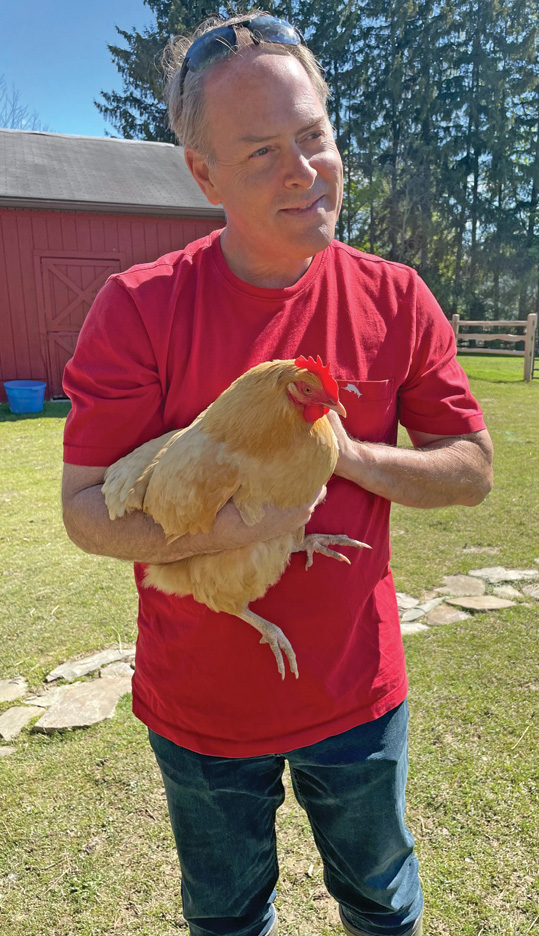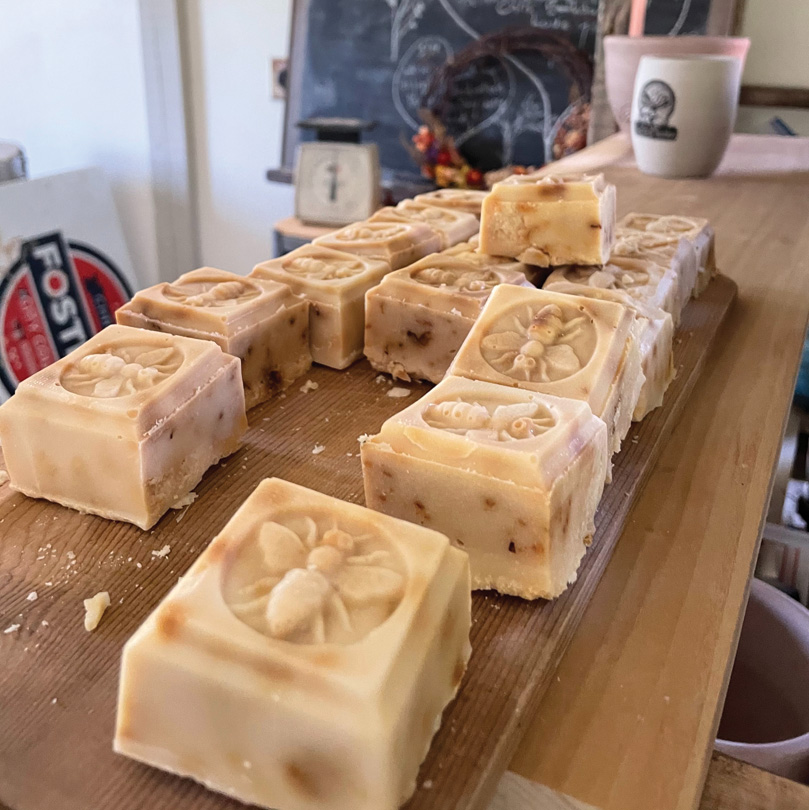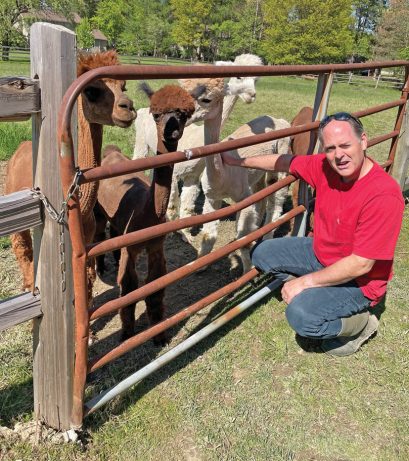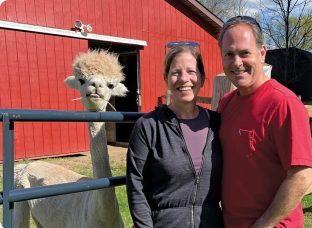Beekeeping beginnings pollinates into sustainable lifestyle for local couple
by Judy Stringer
Preschoolers delight in Laura Joffe Numeroff’s “If You Give …” picture book series, which debuted with a hungry little mouse who once given a cookie then wants milk and then a straw and so forth in a cascading series of appeals.
Had Numeroff written about Hudsonites Chris and Lisa Foster, the story would have started swith honeybees.
Five years ago, the couple bought a 5-acre farm off Walters Road, originally as a place to keep bees after Lisa and her youngest son, Robbie, watch a documentary about the decline of honeybees and wanted to do something to help. The Fosters built a new home on the property in 2019 and moved there permanently from their longtime Atterbury Boulevard residence.
Since then, they’ve have added hens, chicken, turkeys and a half-dozen alpacas to the farm. They’ve also built a greenhouse and outfitted it with a homemade hydroponic growing system. Inside the greenhouse, they cultivate herbs, lettuce and other produce. Outside, they tend to fruit trees, vegetable gardens and hop vines along with the livestock.
“It’s a pretty big property, so once we’d do one thing, we’d look around and say, ‘What else can we do?’” Chris said.
The couple have three grown children, including the Robbie who now attends Hocking College. Much of what is cultivated on the farm ends up on the family table. All three kids were home during the COVID shutdown.
“We would just go to the greenhouse and get our greens, and we had like God knows how much turkey in the freezer, so we didn’t really go out much,” Chris said.
“We did go out for toilet paper,” Lisa joked.
In addition to homegrown meat, produce and eggs, Chris makes mead and beer. Lisa harvests the honey to jar and make and soaps – which she sells at the Ohio Organics & Nature shop downtown.
Chris, who works in publishing and is a Hudson City Council member, said sustainability is the impetus behind much of the couple’s plunge into farm life. What crops they don’t eat themselves or give away to neighbors and friends, feed the animals or end up in the compost pile where they are reused in the gardens. They also collect rainwater in several barrels – including a 300-gallon tank filled with runoff from the barn roof which provides water to the plants and livestock.
Meanwhile, the greenhouse’s irrigation and LED grow lights run on a 15-amp circuit, which “uses about a lightbulb’s worth of energy,” according to Chris. A natural gas well on the property powers heaters in the greenhouse, Lisa’s pottery studio and the main house. And, on May 13, solar panels were installed on the south side of the barn roof.
“The 10-kilowatt system is spec’d to meet 100% of our electric consumption throughout the year. We essentially will no longer need electricity from the grid,” Chris said.
Some future Foster plans include flower gardens, the possibility of alpaca breeding and the sale of “alpaca beans.” Alpaca manure, in the shape of pellets that look like beans, is considered a rich soil conditioner that can be applied directly to gardens and plants without first being aged or composted like other manure.
Lisa also has about eight bags full of recently shorn alpaca wool, which once cleared of burrs, will be sent out for processing into yarn. She anticipates learning to knit once the yarn is returned.
Farther down the road, the couple looks forward to the day when grandchildren help them “hunt” eggs, which the hens lay in various hidden corners of their rustic red barn.
Chris, who grew up in Hudson, admits the undertaking of a farm is an odd choice “for a mid-life crisis.” But, recalling the rural nature of the Hudson of his youth, he is proud to be part of a small contingent of locals – including several of his Walters Road neighbors – restoring a bit of that nearly forgone agricultural charm.
Walters Road, at one time, was home to a sheep farm owned by Wayne Drushal. Much of Drushal’s farm is now the Ashbrook neighborhood. Still, some smaller farms have popped up along the road. Today, passersby can see goats and chickens, and some of the street’s newest residents are a trio of Scottish Highland cattle.
For the Fosters, farming is also a way to stay engaged and active.
“With this sort of midlife crisis, you know, there is not a lot of opportunity to relax,” Chris said with a laugh.
For more information visit on the bees and honey, visit thefostermeadow.com. ∞


Photo by J. Stringer


